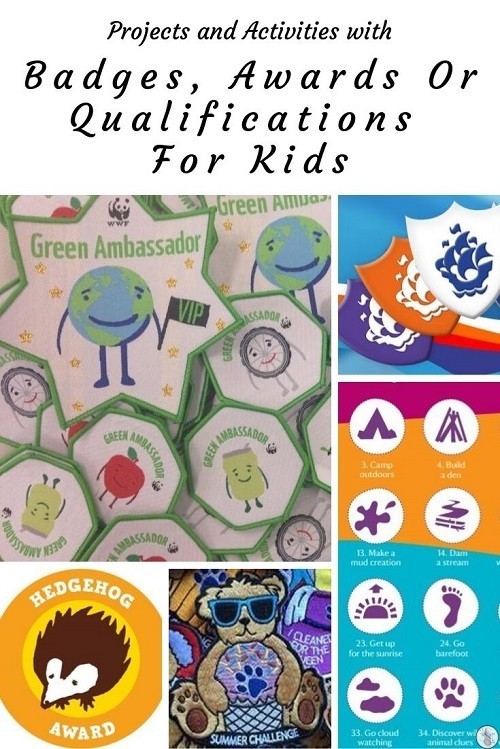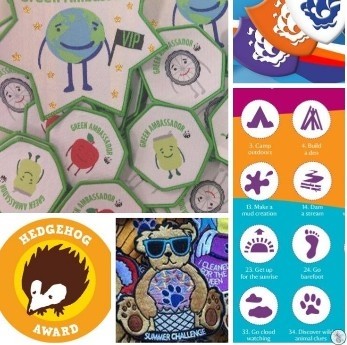I receive a ton of press releases in any given week, and normally I don’t pay them much heed, but today I received one that caught my eye. The headline reads “Traditional children’s hobbies have been replaced by modern phenomena such as computer and mobile games.” While I can’t say this comes as a huge surprise, I do find it a little sad. Now, don’t get me wrong. This post isn’t about bashing modern technology, but rather a few suggestions for those looking to purposely incorporate some of those ‘when I was a child we used to…’ activities into modern children’s lives.
One of the things my girls ask me a lot, every day, is, “Can I just have 20 minutes of screentime so that I can collect my daily rewards?” To which I normally respond, “Didn’t you collect them this morning/afternoon/before dinner/after dinner?” And they’ll answer, “Yes, but those were the morning/afternoon/before dinner/after dinner awards… these are the OTHER ones.”
What this tells me is that a ‘reward’ system is always a bonus when it comes to engaging children, even in engaging them in outdoor activities and learning. It’s one of the things I love about sending the girls to Scouts and Girl Guides. I may hate sewing on the badges, but the tangible rewards provide the same dopamine hit that they receive from their online games!
Here are a few projects and activities that we participate in, or have our eye on, that bring that ‘real-life’ element to gaming with badged rewards and in some cases will even have educational outcomes or long term rewards.

Free or cheap with low commitment
This one has been around since the girls were little, which makes me realise just how long I’ve been a parent! We started this when they first launched it, but the challenges change a little every year. There’s a book you can pick up for free at National Trust properties, or you can buy one from Amazon. There’s also a free downloadable wall chart that you can print.
We have one we picked up from a local property last year, and we’ve been trying to work our way through all 50 things in one year. We have a way to go yet, but we’re mostly on track. You can tick them off online, but we’re working on a photo album too, so it’s an informal and fun way to get out and about in nature.
You can see some of our early #nationaltrust50things posts here.
Wildlife Watch Awards
The Wildlife Watch Award is free for the basic level. You can choose and complete eight wildlife activities from the list of choices to collect electronic stamps. Activities include things like ‘Make music in nature’ or ‘Make a bat box‘ or ‘Make an ice decoration’. When you have completed eight activities and gained eight stamps you’ll be sent a certificate and an icon to display on your online profile page.
For the higher-level awards (from age 8) you need to be a wildlife watch member, which is £18 a year for up to 4 children in a family. Awards then include a certificate and a badge like those from Award Trophies Australia.
Pawprint Badges
I think Pawprint badges are particularly good for little ones and for the colder months where you might want to bring some of the action indoors.
On the website, have a look at the (currently) 49 challenge packs that include seasonal days (Christmas, Easter etc), fun challenges (wizarding, circus) and so on. There are a handful of nature ones too, such as the hedgehog challenge. Download the pack of your choice (these seem to be free) and you’ll find a list of age-based activities. For instance, for the Autumn badge a seven-year-old will choose one activity from four sections – craft, games, food and other – and might create a pumpkin card, try different apples blindfolded, play conkers and read an autumn-themed story. Upon completion, you can buy (£1.25 each) gorgeous embroidered badges as evidence of completion.
These are fun badges, you can dip in and out, you don’t have to do a certain amount. They’re just for fun and pretty low cost and they span a variety of topics, not specifically nature/outdoors.
Free or cheap with medium commitment
The Green Ambassadors 4 Youth scheme offers a series of practical activities that enable exploration of the links between wildlife, the environment and our lifestyles. It’s developed around six topical issues, and aimed at 5 – 14 year olds. Register as a leader for ‘leader briefings’ based around the six topics and complete five activities from a single theme and then you can order your badges at £1 each.
If you didn’t grow up with Blue Peter (me!) then it can be a bit confusing figuring these badges out, but in essence, these are retrospective for things done. You (the child) then tell them about what you have done and if chosen you receive one the badges – apparently with these badges kids also have free entry to loads of attractions. The badges are for involvement in the TV show (blue), involvement in environment, nature and conservation (green), participating in a new sport (orange) and exceptional achievements (gold), to name a few. I would imagine that completing some of the other badged activities could tie in with one of these, so you’re essentially achieving two ‘awards’ for the same work.
Recognised Qualifications
The John Muir Award is a national environmental award scheme. It encourages people to connect with, enjoy and care for wild places. There are three levels to this award, with the most basic one being suitable to younger children. This is a recognised award so it has some defined goals that need to be achieved (for example the equivalent of four days outdoor learning and six hours of home learning for the Discover award.) The leader also needs to submit a proposal to the Trust on how you will achieve the award, what learning will take place etc. It sounds more overwhelming than it is, but it does require more structure than the others mentioned here. The Award is open to all and can be undertaken as a group, family or individual. The award itself is free of charge, but there may be a fee for the assessment, and if you’re working through a group (i.e. a Forest School setting) then there may be charges for their time.
Arts Award inspires young people to grow their arts and leadership talents: it’s creative, valuable and accessible because you can – especially at the early levels – use what you already do and love to gain a recognised qualification. The Arts Award can be achieved at five levels, four qualifications and an introductory award with custom engraved plaques.
